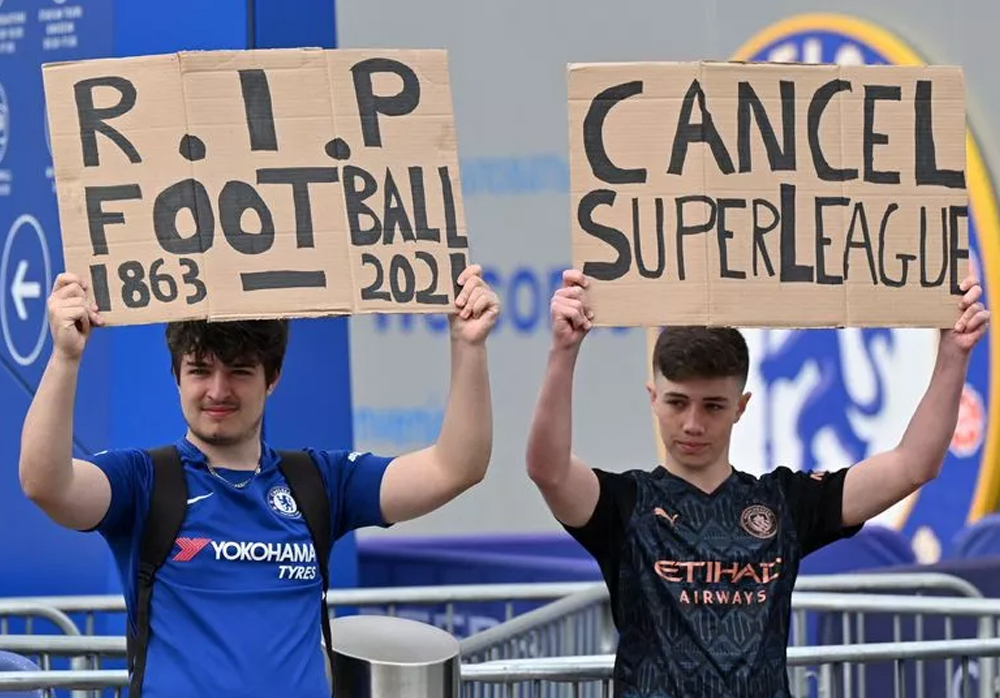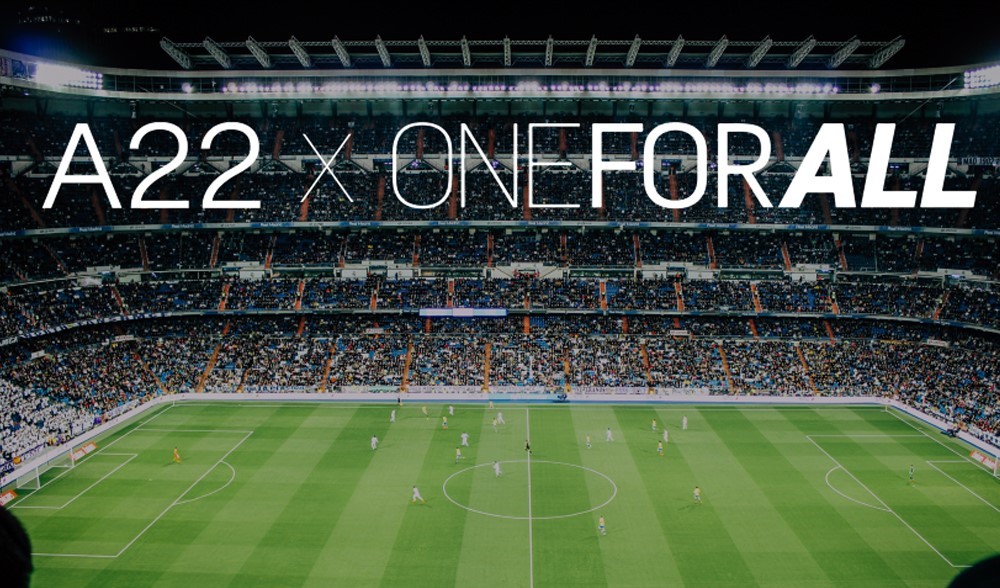The legal battle may have been won, but the ESL’s failure to mobilise in the Public Relations war remains its biggest failing.
Approximately 32 months after it appeared the door to the proposed breakaway European Super League (ESL) had been decidedly slammed shut, a recent European Court of Justice ruling may have reopened it, or at the very least, left the door ajar.
In December, the European Court of Justice (ECJ) ruled that football governing bodies UEFA and FIFA had “abused a dominant position” by threatening to impose aggressive sanctions and bans upon the 12 clubs involved in the breakaway league. The ECJ found these sanctions to be “unlawful” and “harmful” and stated that some of UEFA’s commercial practises equated to a “restriction of trade.”
Legal victory or muddied water?
In the immediate aftermath of the ruling, global media reported it as a decisive legal victory for the European Super League. However, in the proceeding hours, as the rest of us began to unpick the small-print and reacquaint ourselves with the chaotic collapse of what went before, the picture became a little more muddied. Consequently, the legalities of the ruling quickly took a backseat to the PR battle that had subsequently recommenced.

‘Football is free’ vs ‘football is not for sale’
Media company A22, creators of the original Super League concept, was first out of the blocks to ‘welcome’ the news; with CEO Bernd Reichart declaring that “football is free”. Within a matter of hours, the company had tabled a rebooted ESL proposal, complete with glossy video and a repurposed competition framework, designed to make it slightly more palatable to its broad spectrum of historically hostile audiences.
UEFA’s press office interpreted the ruling very differently. It insisted that the ruling was a reflection of an earlier technical “shortfall” in its system that was subsequently addressed in June 2022. Its statement argued that the court’s findings “does not signify an endorsement” of the Super league. Meanwhile, FIFA president Gianni Infantino suggested that the ECJ verdict “does not change anything.”
Later that day, UEFA President Aleksander Ceferin dismissed A22’s revised blockbuster proposal, claiming he didn’t know whether to be “shocked or amused”. “I hope they have a fantastic competition … with two clubs”, he added, before concluding that “football is not for sale”.
Whilst media attempted to decipher the competing narratives emerging from the opposing camps, the key document proved to be the ECJ press release. The press release’s headline stated that “FIFA and UEFA rules on prior approval of interclub competitions, such as the Super League, are contrary to EU law”. In the world of real-time news cycles and resource-poor newsrooms, this was enough to tip the news narrative in A22’s favour.
UEFA recognised the significance of this headline, and it was soon reported that its legal team was challenging the contents of the ECJ press release, claiming it to be “inaccurate” and “contradicts the judgement”.
Attention quickly turned to the original 12 breakaway Super clubs, however, at this stage, only Real Madrid and Barcelona remained on record as supporters of the project. The six premier league clubs all issued statements within minutes reaffirming their loyalties to UEFA competitions, and in doing so, closed down on any prospect of a second very public U-turn.
Who is going to sell the vision
A fortnight on from the ECJ ruling, the initial burst of Super League hysteria appears to have died away, prompting the question of where does it go from here?
Clearly, the original ESL concept launched in April 2021 was deeply flawed. Its failure can be attributed to numerous factors, including a self-serving concept and an overly narrow support base. However, at the very centre of its downfall was a failure to sell its vision, or put forward anyone with the necessary football or political credibility to sell it on their behalf. In the absence of the prerequisite salesmanship or PR muscle, the 12 breakaway clubs immediately lost control of the narrative.
Into the communications vacuum stepped Gary Neville and co; and their damning outrage set the tone for all subsequent analysis. The story was quickly framed as a battle for the soul of European football, of good versus evil, of cherished cross-generational football traditions against hyper-aggressive global capitalism and the Americanisation of European sport. Within 72 hours of its unveiling, the coup was defeated.
32 months later, little has changed. When A22 declared ‘football was now free’, there was nobody outside of Real Madrid president Florentino Pérez to champion this message or articulate the upside of this newfound ‘freedom’, beyond being a self-serving money grab on the part of the handful of clubs involved. Even A22’s commitment to making the matches free to view on a purpose-built streaming platform largely passed people by and failed to move the needle amongst football supporters.

Converting cynics into believers
The global football pyramid is deeply flawed, and few would be naïve enough to confuse governing bodies FIFA and UEFA for benign custodians of the beautiful game. However, the most telling development to emerge from December’s ECJ ruling has been the diverging but emphatic interpretations, and by extension, PR spin, of the opposing parties involved.
Recent developments in PGA golf have once again reminded us that money, power, and politics are rarely far from the surface in professional sport and those with the deepest war chest typically win out. The newly pragmatic tone of Rory McIlroy’s headline grabbing interview on the Stick to Football podcast this week further bears this out.
However, while the ECJ ruling may have given A22 and others fresh impetus to challenge the “70-year (UEFA) monopoly”, if they’re serious about convincing other key players in the global football pyramid of the merits of ‘setting football free’, they will need to work on their sales pitch to convert the cynics into believers.

With his intelligent communications skillset and extensive media connections, Paddy helps clients build stand-out messaging and achieve their business objectives, whether they’re a start-up raising seed capital or an established player pushing for industry reform or telling their employer brand story. Paddy has been published in a number of national publications, including the Business Post, Irish Independent, Fora.ie, and The42.ie on the theme of strategic communications and reputation management.
Article originally published on Jan 6 in the Business Post: https://www.businesspost.ie/news-focus/european-super-leagues-failure-to-mobilise-in-the-pr-battle-at-the-heart-of-its-downfall/
